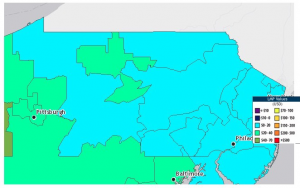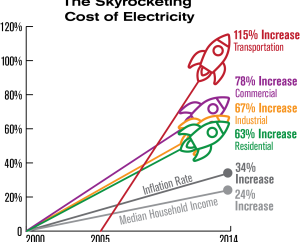One of the main things you’ll have to do while contrasting Texas power rates is to give your Postal division. That is on the grounds that a few pieces of Texas fall beyond the liberated market and have their own energy rules. In the event that you live in a directed market, the Public Utility Commission of Texas will figure out which Pulse Power suppliers you can browse. In Austin, for instance, most occupants get their power from Austin Energy. Occupants of most different urban communities in Texas, including Dallas-Post Worth and Houston, can browse many retail energy suppliers.

What Are the Power Realities, Mark?
With so many energy suppliers and plans to browse, figuring out the entirety of your options can be hard. That is where the Power Realities Mark (EFL) comes in. Your electric organization needs to give an EFL to each plan they offer — like that, you know precisely the exact thing it is you’re getting and can stay away from stowed charges on your energy bill. Here is an illustration of Simply Energy’s EFL for a fixed-rate energy plan. As may be obvious, it frames the provisions of the agreement (a year) and the typical cost per kWh. It additionally explains the solutions to a few FAQs, for example, “Might my cost at any point change during the agreement time frame?” and “What different expenses may I be charged?” For this arrangement, the end charge is $175, however, $0 with confirmation of move-out. You’ll likewise see the level of power that comes from environmentally friendly power sources.
Kinds of Energy Plans in Texas
- Fixed-Rate Plans
A fixed-rate plan is what it seems like: an energy supplier will ensure a particular cost for every kWh, and that cost won’t change however long your agreement would last. (Except if there are changes in hidden energy costs, like charges and duties.) The advantage to a fixed-rate plan is that you’ll have the option to financial plan as needs are, and the length of your energy utilization remains similar consistently, you will not be hit with startling energy charges. That’s what the disadvantage is in the event that discount power costs go down, you won’t benefit: you’ll need to hold on until your agreement is over to get a more ideal arrangement.
- Variable-Rate Plans
In the event that you pick a variable-rate plan, your power supplier can raise or lower your rates from one month to another. Your rates could go down assuming energy gets less expensive, however, they could likewise go up, regardless of whether you utilize a similar measure of power every month. Variable rate plans are more adaptable than fixed-rate plans, so they actually can be a decent decision in the event that you need a month-to-month plan with no end charges. However, you will not have the option to secure low rates in the event that energy costs are presently low where you reside.
- Filed Plans
Recorded plans are a great deal like variable-rate plans, yet for this situation, the rates are attached to a particular ware file. Your energy organization can’t raise them inexplicably. In any case, it merits perusing the fine print to figure out how these rates are determined.
- Prepaid Plans
Most energy organizations send you a month-to-month bill after they’ve determined your power use for the month – however they might require a credit check to open your record. With a prepaid arrangement, you can buy a particular measure of energy forthrightly and use it as you go, generally with no store or credit check required. You can imagine it as purchasing information or minutes for your cell, rather than pursuing a drawn-out agreement.

